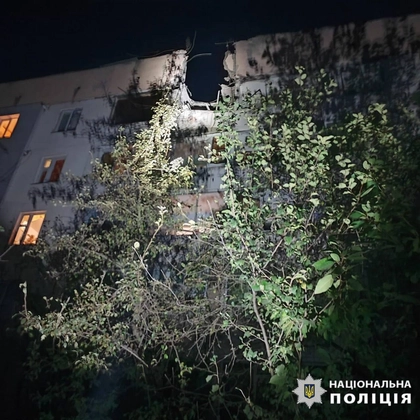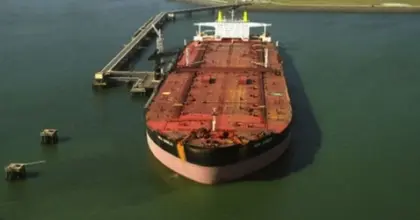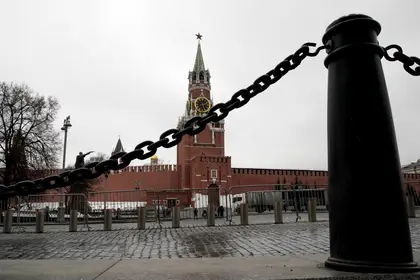Russia has likely found a new way to transport its oil to get around Western sanctions, Bloomberg reported on August 3. The El-Hamra oil terminal in Egypt will help, the report added.
On the morning of July 24, the tanker Crested delivered cargo of more than 700,000 barrels of oil to El Hamra. Within just a few hours another ship took almost all the oil from the port.
JOIN US ON TELEGRAM
Follow our coverage of the war on the @Kyivpost_official.
This ship, a tanker called Chris, arrived at the Ras Shukhair oil terminal situated on Egypt’s Red Sea coast. The fact is that this terminal makes it possible to mix crude Russian oil with Egyptian oil, thereby making it difficult to establish its origin. All this reinforces the trend of greater secrecy in the supply of Russian oil after European buyers began to avoid them.
However, it is still not known for certain whether the El-Khamra case was a one-time event or whether it will become a regular pattern for Russian oil exports.
This is not the first time that Russia has hidden hides the origin of oil products due to their mixing. After all, in May, tankers with Russian oil arrived at the ports of New York and New Jersey despite the fact that the U.S. imposed an embargo on Russian energy carriers.
However, according to the Financial Times in May, European governments have softened efforts to restrict trade in Russian oil. They have allowed some international supplies, delaying a plan to exclude Russia from the vital marine insurance market of Lloyd’s of London. This is because Europe is wary of rising oil prices and squeezed global supplies of energy resources.

Kyiv Hit by Massive Drone Attack as Russian Strikes Target Multiple Ukrainian Cities
The ban on insurance in the EU, which was introduced on June 4, 2022 remains in force. It does not permit companies to take out new insurance for any vessel with Russian oil. Existing contracts will remain valid until December 5.
However, the EU has changed some of its own sanctions to allow European companies to deal with some Russian state-owned companies for the purpose of transporting oil to countries outside the union. European companies are no longer prohibited from paying companies such as Rosneft if “these transactions are absolutely necessary” to buy or transport petroleum products or crude oil.
Furthermore, since June, the White House has been working to encourage G7 countries to maintain the price cap mechanism. This would allow some volumes of Russian oil to go to third countries if they agree to pay a lower than the market price for the cargo.
The EU ban will take full effect in December and,according to officials in Washington, the U.S. and Britain still plan to ban maritime services, including insurance. However, first they want to set a cap on oil prices before the U.S. mid-term elections in November.
In turn, Russian energy firm Gazprom is, according to Finnish publication Yle, continuing to burn gas near the Portova compressor station at the Nord Stream gas pipeline and at the LNG terminal.
Fires at the LNG terminal began to be seen on satellite images of NASA’s fire monitoring system on May 22 and have continued since then.
Fires were spotted at the Portova plant on June 17. Then, within a few days, the daily pumping of gas through the Nord Stream pipeline was reduced from 167 million cubic meters to 67 million cubic meters.
Gazprom is deliberately reducing gas supplies to Europe. The official reason is problems with the return of the turbine specifically for the Portova compressor station.
According to Gazprom, the operation of another Siemens gas turbine engine at the Portova plant was halted on July 27. As a result, the pumping of gas through Nord Stream fell from 40% to 20% of its capacity. Earlier in July, the Canadian government returned a repaired turbine for the Russian gas pipeline at the request of Germany despite sanctions imposed on Russia for its invasion of Ukraine.
You can also highlight the text and press Ctrl + Enter






